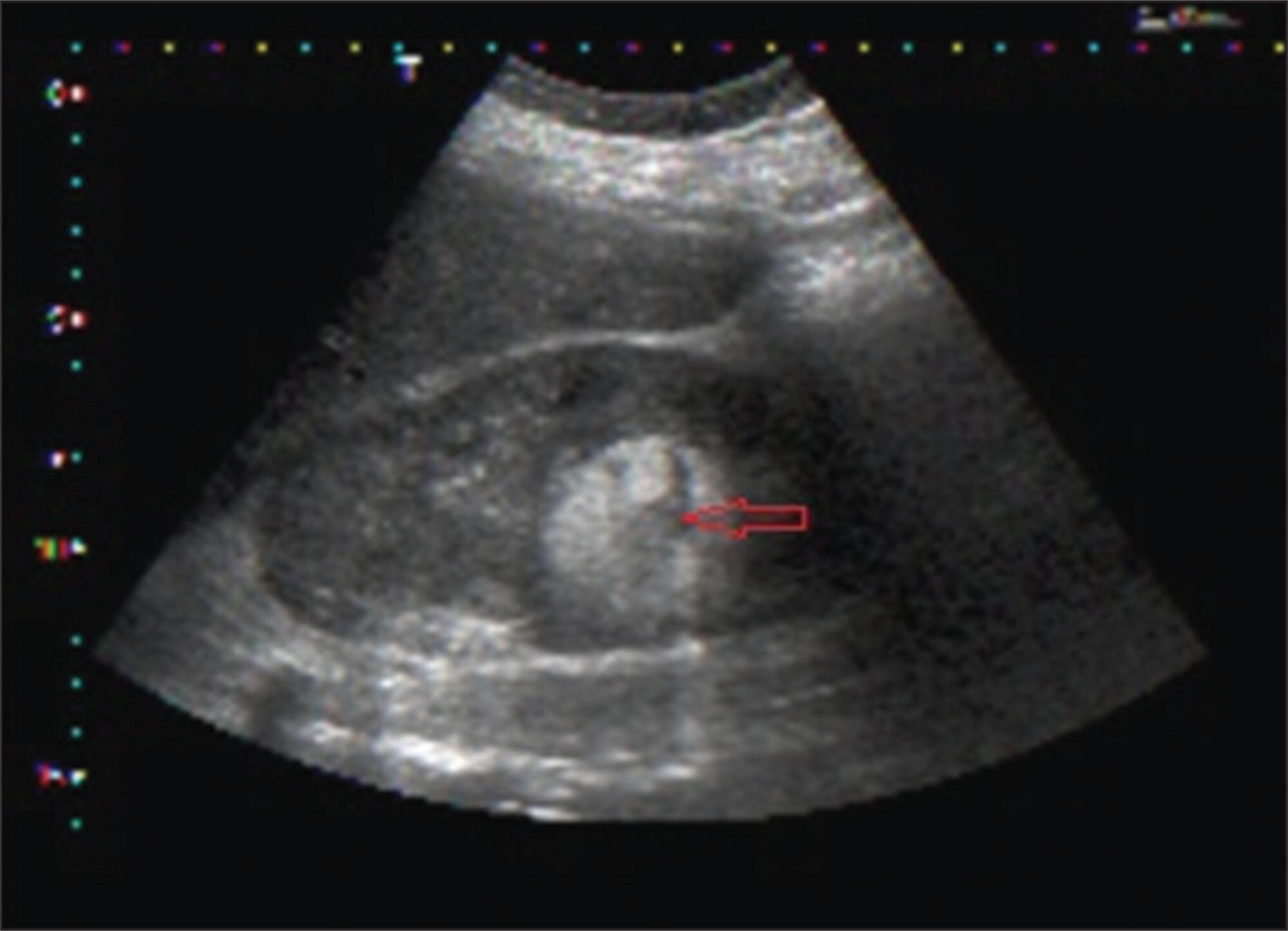Summary
Revista Brasileira de Ginecologia e Obstetrícia. 2014;36(8):377-380
DOI 10.1590/SO100-720320140005019
Renal angiomyolipoma is a benign tumor, composed of adipocytes, smooth muscle cells and blood vessels. The association with pregnancy is rare and related with an increased risk of complications, including rupture with massive retroperitoneal hemorrhage. The follow-up is controversial because of the lack of known cases, but the priorities are: timely diagnosis in urgent cases and a conservative treatment when possible. The mode of delivery is not consensual and should be individualized to each case. We report a case of a pregnant woman with 18 weeks of gestation admitted in the emergency room with an acute right low back pain with no other symptoms. The diagnosis of rupture of renal angiomyolipoma was established by ultrasound and, due to hemodinamically stability, conservative treatment with imaging and clinical monitoring was chosen. At 35 weeks of gestation, it was performed elective cesarean section without complications for both mother and fetus.

Summary
Revista Brasileira de Ginecologia e Obstetrícia. 2011;33(1):43-48
DOI 10.1590/S0100-72032011000100007
The treatment options for pregnant patients with invasive cervical cancer (ICC) depend on gestational age, clinical stage and the patient's wishes. Some authors have reported cases of neoadjuvant chemotherapy followed by radical surgery in these patients. The aim of this paper was to revisit this subject and to add a new case and review the literature. We report the case of a 30 year-old woman in the 24th week of gestation. She was diagnosed with ICC (squamous cell carcinoma grade 2), stage IIB (International Federation of Gynecology and Obstetrics - FIGO). Nulliparous, the patient refused to interrupt the pregnancy. After meticulous counseling, the patient accepted treatment with neoadjuvant chemotherapy (cisplatin 75 mg/m² and vincristine 1 mg/m²) and subsequent evaluation of radical surgery concomitant to a cesarean section. Four complete cycles of chemotherapy were administered without delays or significant adverse effects. A few days before the date scheduled for surgery, the patient was admitted in advanced labor (37th week of gestation). Due to tumor clinical response, the obstetric team decided to monitor the labor, and the patient gave birth to a male newborn (2,450 g) uneventfully. Radical surgery was performed three days after birth, and histopathology analysis revealed carcinoma confined to the cervix without lymphatic involvement. Mother and son are in good general condition 12 months after delivery. Cisplatin-based chemotherapy during the second or third trimester of pregnancy appears to be a safe option for patients who do not wish to interrupt a pregnancy while awaiting fetal maturity. However, additional studies are needed to confirm the prognosis and assure the safety of newborns and patients.